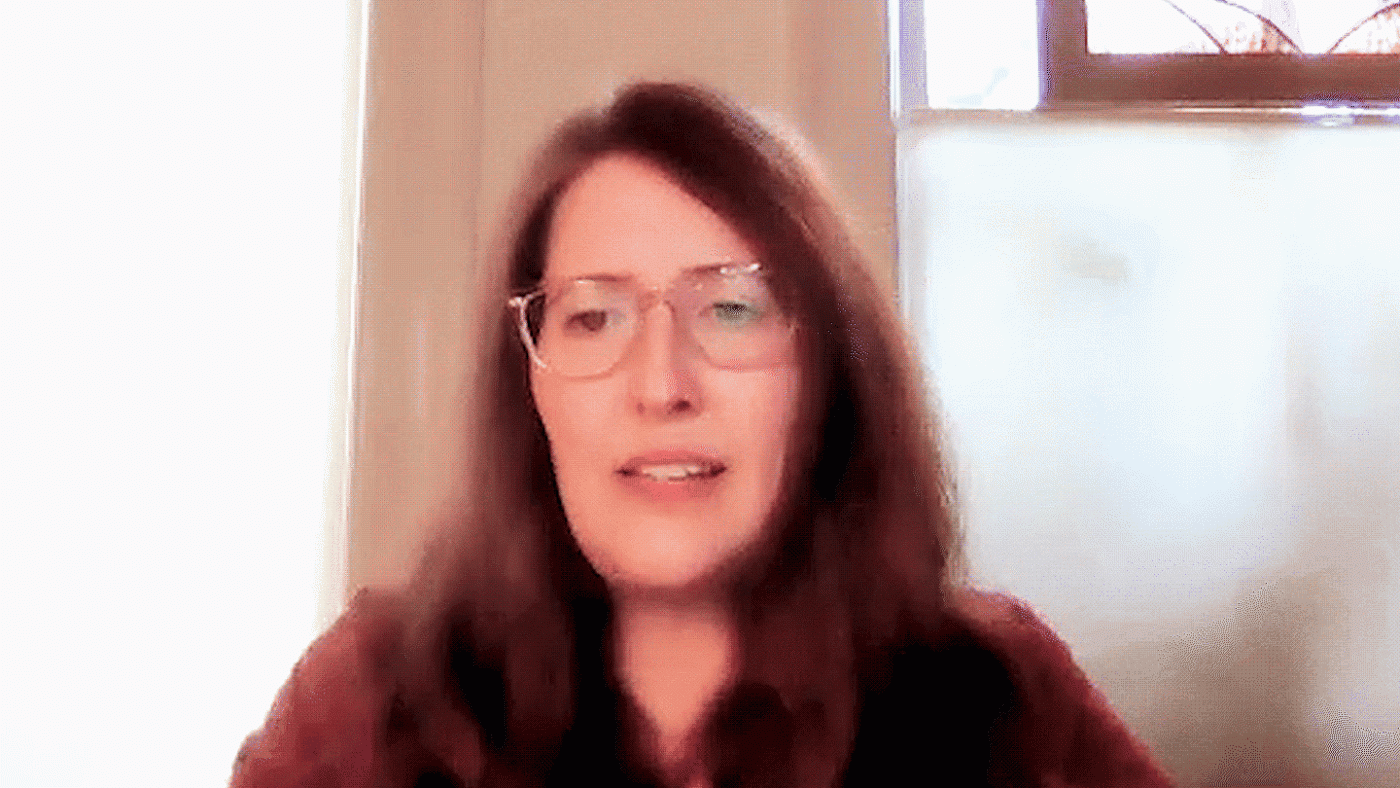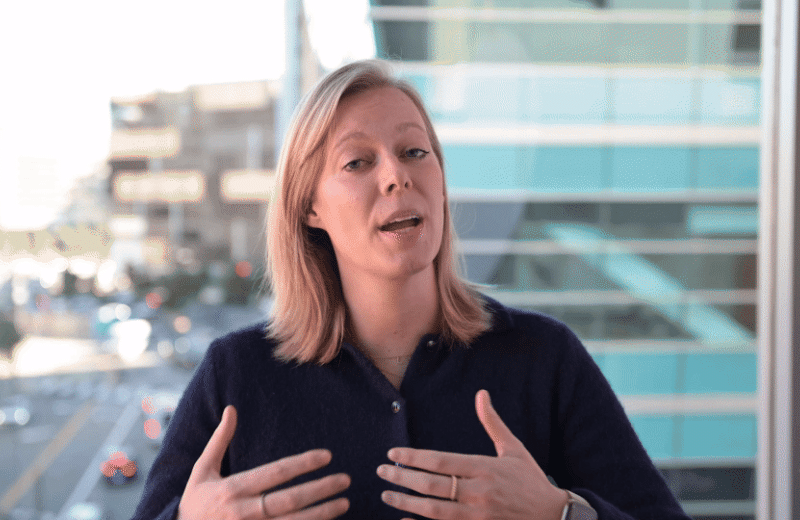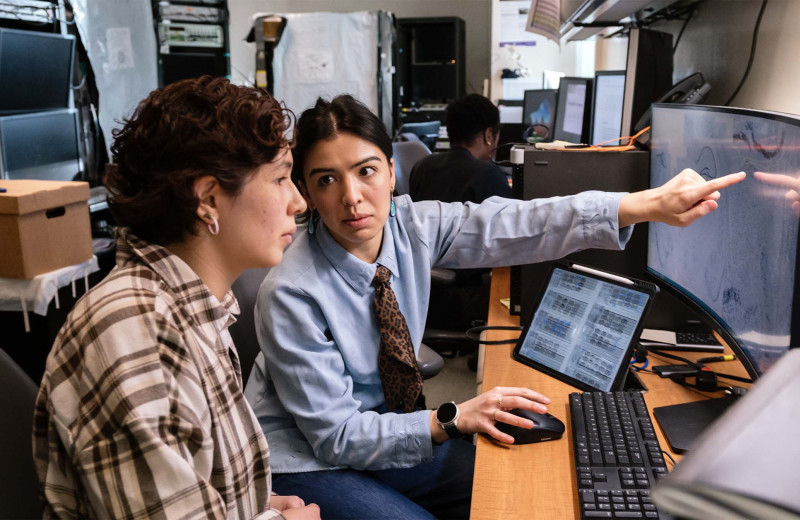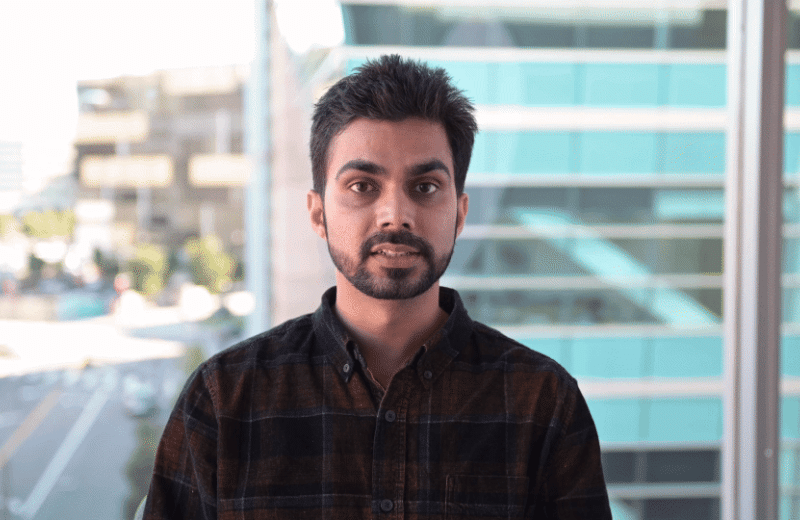Gladstone NOW: The Campaign Join Us on the Journey✕

Courtney Dickerson is a project coordinator in the office of the chief operating officer at Gladstone. She is the glue behind Gladstone’s COVID-19 Task Force and spends her free time perfecting gluten-free baking.
What do you do at Gladstone?
I’m the project coordinator in the office of the chief operating officer, Bob Obana. Bob manages several different initiatives across the organization, like the strategic plan, updating our policies, and the lobby renovation. I coordinate with teams across Research Operations to keep these projects on track and moving forward, acting as a project manager for some of the organization’s most important projects.
What brought you to Gladstone?
I first heard of Gladstone when I was working across the bay in Oakland. A few of my colleagues had come back speaking the praises of the Gladstone community and the scientific work that was being done. So, when an opportunity opened up, I just went for it.
How has the pandemic changed your work?
It's changed quite a bit. My goals and plan for this year changed rather rapidly as they did for a lot of people.
At the beginning of the year, when we first found out about COVID-19, we were just trying to get as much information as we could to understand the risk level for our community and what was going to happen next.
As things changed and we had to temporarily close our doors at the beginning of March due to the state-wide lockdown, the organization had to put together a plan to keep our essential workers on-site safely. This was one of my main initiatives that I helped coordinate.
From the offset, Gladstone assembled a COVID-19 Preparedness Response Task Force. We have weekly meetings to make sure everyone has the latest information and that Gladstone’s policies coincide with the City of San Francisco and the State of California policies and guidelines. We do our best to combine those guidelines with the guidelines set forth from the CDC and the World Health Organization.
At Gladstone, whoever is able to work from home is expected to, which includes me. So, I’m coordinating all of this work remotely. I’m attending the task force meetings, staying on top of the latest state and local guidelines, and implementing policy changes.
Once our task force sets forth the guidelines and policies, we have to communicate them to our community. I work directly with the Communications Team to inform our community of changes and the latest updates through our intranet, email, and signs around the building.
That’s what this year has looked like for me. Every time I think we’re at a place where I can move on to the next thing, we get more information about the virus and the status of our city, county, and state. That’s just how science works. It’s important to keep a pulse on what’s going on with our research and research happening across the world. As we find things out, we have to adapt our practices and policies in order to keep people safe in the building.
How have you been spending your time during shelter in place?
I love some of the projects that I’ve seen people do with Legos and models. My husband made a movie that he transferred from Super 8mm film and learned Final Cut Pro.
I did not do any of those things. I have watched lots and lots of genre TV and movies. I am very well caught up on horror, science fiction, and fantasy shows and movies.
What do you like most about your job?
I love so much about my job. But I’ll focus on one thing, which is getting to work with a stellar group of people on a daily basis.
All these people around me have so much knowledge and I get to be a fly on the wall and get to be a force pushing their work forward and helping them. It feels amazing. And I mean that about everyone, from the scientists to those in Research Operations.
Everyone has been working so hard during this pandemic and people have really shown their true colors, grit, and commitment. I’m super impressed by everyone’s dedication during this time.
If you could learn to do anything, what would it be?
I’d love to do storytelling for kids. I have a theater background—my Bachelor of Fine Arts is in theater performance. My husband’s and my plan for when we’re retired is to teach kids improv, how to tell stories, and put their stories up on the stage. That’s a long way off, but that’s what I want to do.
Do you have any hidden or unique talents?
I do a lot of gluten-free baking. It’s a bit of alchemy, because it's really hard to get that consistency in a bake when you’re making gluten-free. It can be very very difficult. Sometimes I have a good bake and sometimes I have a bad bake, as they say on the Great British Bake Off.
Have you made any particularly good bakes in quarantine?
There was a chocolate banana bread that went over really well. I was pretty proud of it.
If you could meet any scientist from any point in time, who would it be and why?
I think an easy one is Ada Lovelace because I’d just love to hear her talk about how her brain worked and how she arrived at her discoveries, just straight from her own mouth.
Can you describe your role as part of the Women’s Initiative?
I came on to the Women’s Initiative last year to help with a new program called the Mentor Matchup program. In some organizations, mentoring happens quite organically, and in others, we need to give it a little more structure. For this program, we match two people together, anywhere across the organization. It’s not just for scientists or those working in Research Operations. If you’re in a scientific role now, but you have an interest in other areas that you’d like to explore, like fundraising or graphic design, then you can be matched with someone and learn more about their work.
What changes have you seen for women in the workforce and what do you hope to see for the next generation?
I’ve been very lucky in that I have worked with probably more supervisors who were women and they were all really great mentors to me.
In the STEM fields, I’d like to see more women and people of color in leadership roles. Right now, we’re learning how to do that at Gladstone.
We have these two event series called Critical Conversations and Amplified, which are bringing a light to some of these issues within the Gladstone community and beyond. I hope that we’re able to recognize where we need to go and expand who is actually sitting at the table and to include people who are more representative of our global population.
It’s an exciting time. There’s a lot of momentum toward this movement. I’m very excited for what’s to come next.
Want to Join the Team?
Our people are our most important asset. We offer a wide array of career opportunities both in our administrative offices and in our labs.
Explore CareersMeet Gladstone: Alisa Dietl
Meet Gladstone: Alisa Dietl
Alisa Dietl brings her international training and clinical perspective to Gladstone, where she works to engineer more effective cancer immunotherapies for solid tumors.
Graduate Students and Postdocs Profile Cancer Pelka LabVoices of Outstanding Mentorship
Voices of Outstanding Mentorship
Three recipients of Gladstone’s Outstanding Mentoring Award share their personal approaches to mentorship and reflect how this passion has shaped their own growth as leaders.
Profile Roan Lab Graduate Students and PostdocsMeet Gladstone: Shyam Jinagal
Meet Gladstone: Shyam Jinagal
Shyam Jinagal explores how genetics, aging, and regeneration shape the heart—and how those insights could one day restore heart function after injury.
Graduate Students and Postdocs Profile Cardiovascular Disease Srivastava Lab



